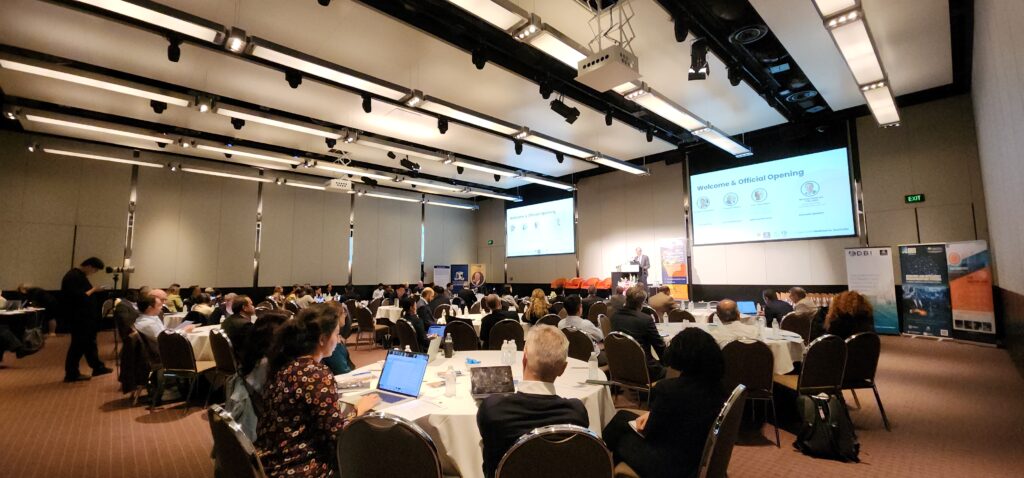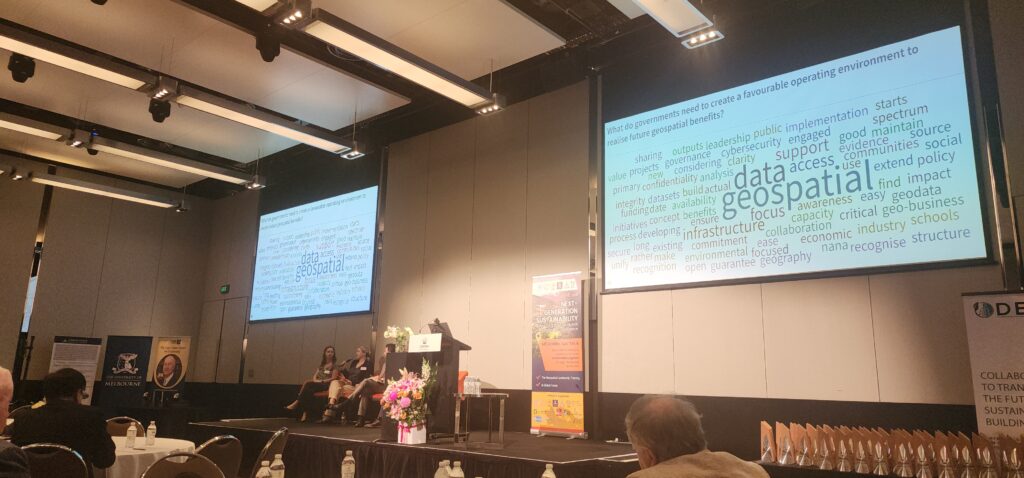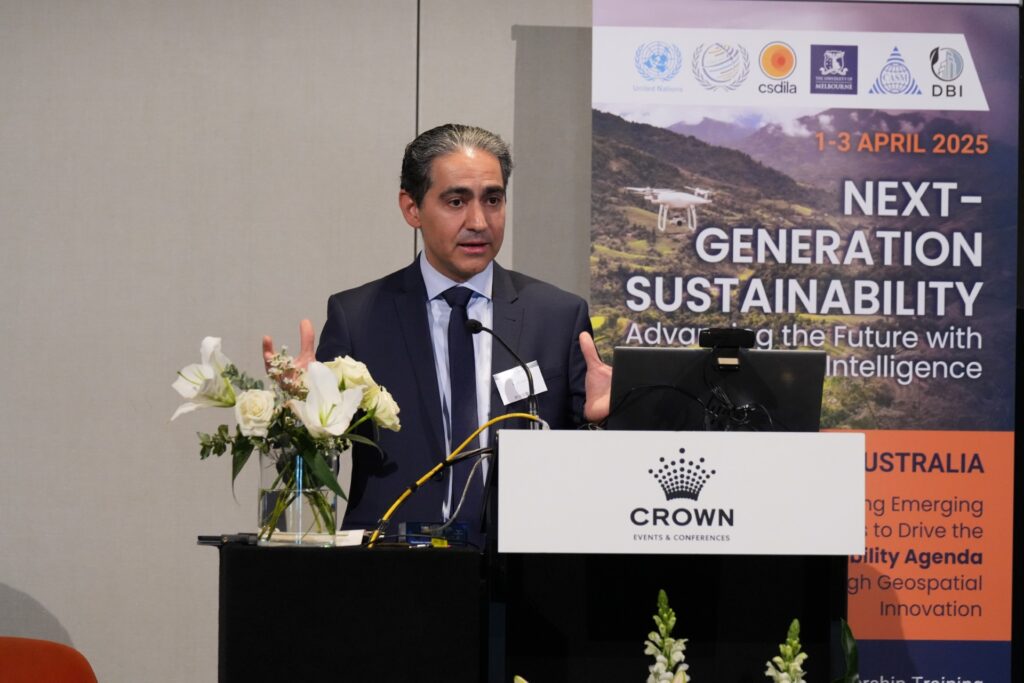From April 1-3, 2025, Melbourne, Australia, hosted the Geospatial Leadership Training & Global Forum, a transformative gathering that brought the global geospatial community together under the theme Next-Generation Sustainability: Advancing the Future with Geospatial Intelligence. Organized by the United Nations Global Geospatial Knowledge and Innovation Centre (UN-GGKIC), the University of Melbourne’s Centre for Spatial Data Infrastructures and Land Administration (CSDILA), and the Chinese Academy of Surveying and Mapping (CASM), this event delivered powerful insights and actionable strategies for a sustainable future. As proud sponsors, we at Decarbonising the Building Industry (DBI) were honored to support this milestone, which reinforced the critical role of geospatial intelligence in decarbonizing the built environment.
With climate change impacts intensifying, the forum underscored the urgency of leveraging geospatial data for resilience, risk mitigation, and sustainable development. Bringing together thought leaders from government, academia, and industry—supported by partners like FIG, UN-GGIM, and the Australian Research Council-RIIS Research Hub—the event showcased how geospatial technologies can drive tangible climate action. For the building industry, the discussions offered a clear roadmap for integrating geospatial tools into low-carbon infrastructure, sustainable land use, and urban planning—priorities at the heart of DBI’s mission.

April 1-2: Empowering Geospatial Leaders
The event launched with a two-day intensive training program on April 1-2, equipping 150 emerging leaders with cutting-edge skills. Led by experts from CSDILA, CASM, and UN-GGIM, this hybrid initiative combined in-person and online sessions, ensuring broad participation. Participants explored trends like GeoAI, Digital Twins, and on-demand ecosystems, gaining the expertise to tackle climate resilience and the UN Sustainable Development Goals (SDGs). For the building sector, the training illuminated how geospatial intelligence can optimize sustainable construction and infrastructure management.
Day 1 highlights included:
- Session 1: Geospatial Leadership (chaired by Prof Abbas Rajabifard), where speakers like Dr Nadine Alameh from the Taylor Geospatial Institute outlined how geospatial innovation addresses sustainability challenges—insights directly applicable to carbon-neutral building design.
- Session 4: Financial Models and Real Estate (chaired by Ms Jamie Leach), which demonstrated how geospatial solutions enhance real estate market analysis and sustainable urban development, offering practical tools for decarbonizing property portfolios.
On Day 2, Redefining the Geospatial Ecosystem (chaired by Dr Greg Scott) revealed how emerging technologies reshape decision-making and governance. These discussions inspired new approaches to designing and managing energy-efficient buildings, a key takeaway for DBI’s work.

April 3: A Forum for Action
The final day transitioned into a vibrant global forum, uniting leaders to chart a sustainable path forward. The Sustainability and Infrastructure Resilience session (co-hosted by DBI and RIIS, chaired by A/Prof Behzad Rismanchi) was a standout, with experts like Prof Nasser Khalili and Dr Maryam Nasim showcasing how geospatial data bolsters infrastructure against climate impacts—an essential strategy for reducing the building industry’s carbon footprint.
Meanwhile, Technological Innovations for Sustainable Development (chaired by Prof Saeid Pirasteh) highlighted tools like Digital Twins and GeoAI, sparking ideas for sustainable construction and land management.
The forum closed with a Panel Discussion on strategic pathways for sustainability, featuring luminaries like Dr Pengde Li (UN-GGKIC) and Mr Jamie Leach (Open Data Australia). A special Leadership Medal Presentation and Prof Abbas Rajabifard’s closing reflections capped off an inspiring three days, leaving attendees with a renewed sense of purpose.

Sponsoring this event was a natural fit for DBI. Geospatial intelligence is a cornerstone of our efforts to decarbonize the building industry—whether it’s optimizing site selection for energy-efficient projects, monitoring infrastructure health, or reducing environmental impact. The forum’s emphasis on data accessibility, interoperability, and ethical governance reinforced our commitment to innovative, responsible solutions. Sessions like the infrastructure resilience discussion co-hosted with RIIS provided concrete strategies we’re already exploring for implementation.
The Geospatial Leadership Training & Global Forum 2025 wasn’t just a moment—it was a catalyst. The connections forged, solutions shared, and skills gained in Melbourne will ripple through the building industry and beyond. At DBI, we’re energized to integrate these insights into our work, from advancing low-carbon construction to shaping resilient urban landscapes. Stay tuned as we translate this momentum into action, driving the decarbonization agenda forward.

